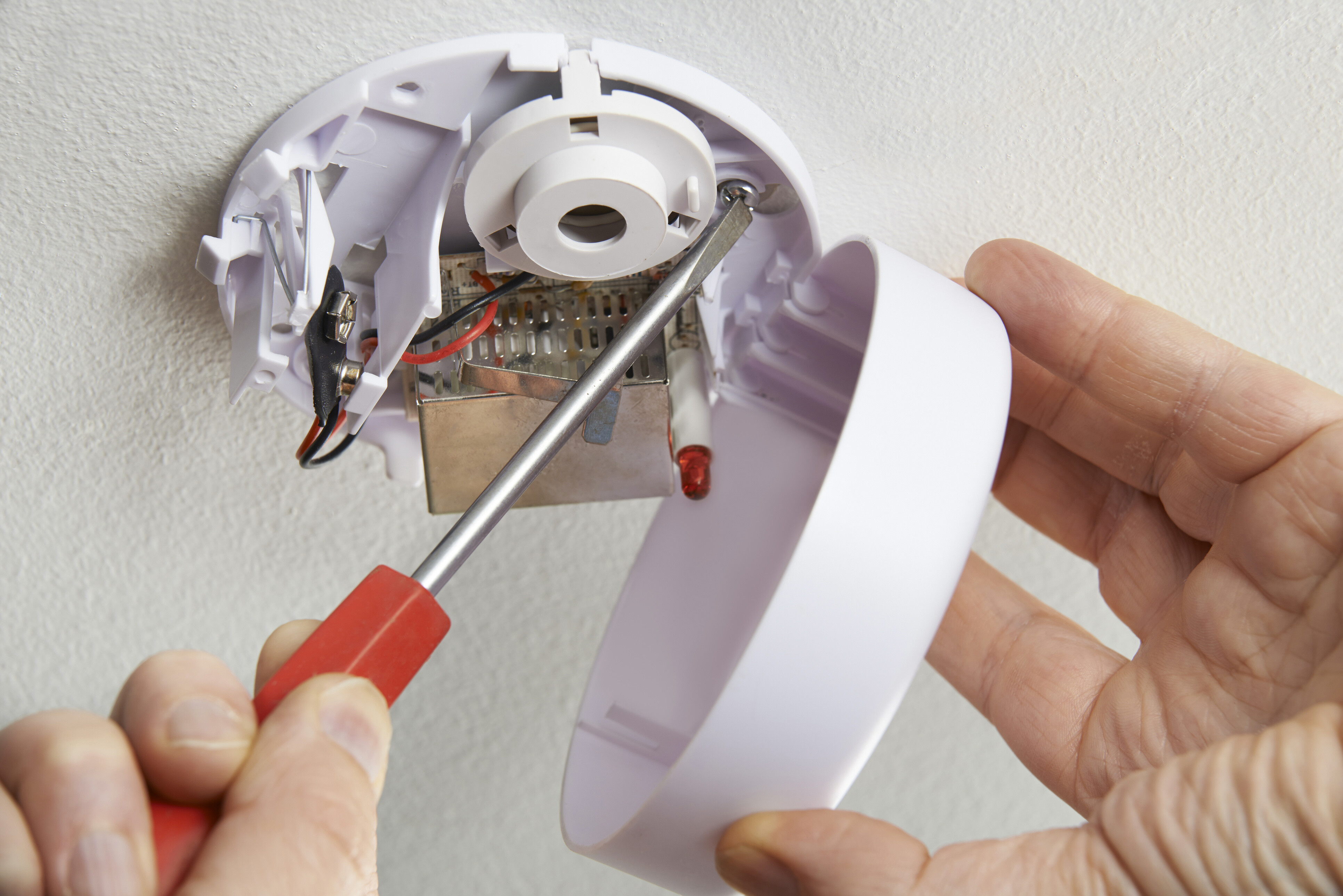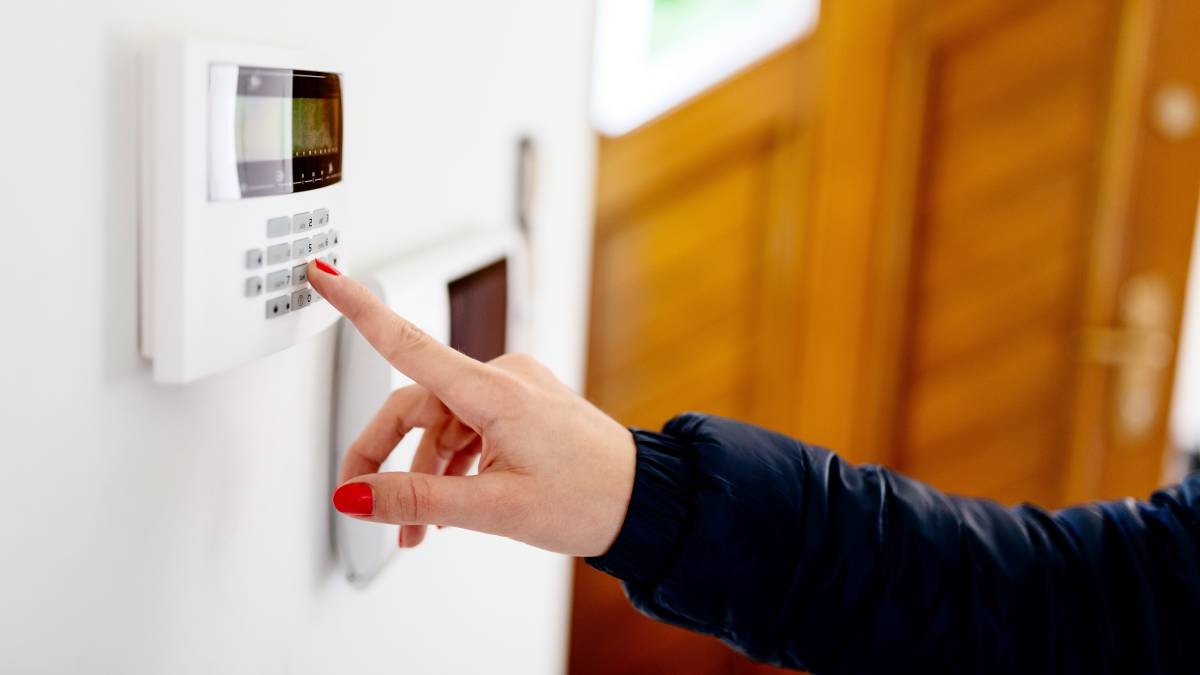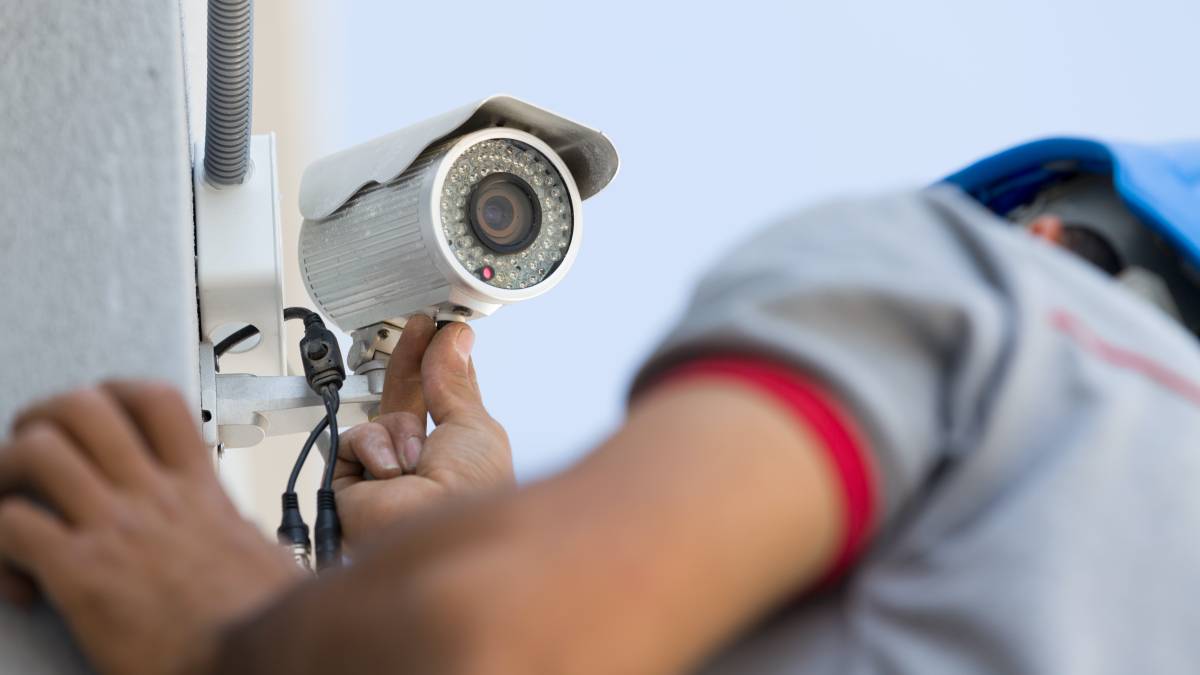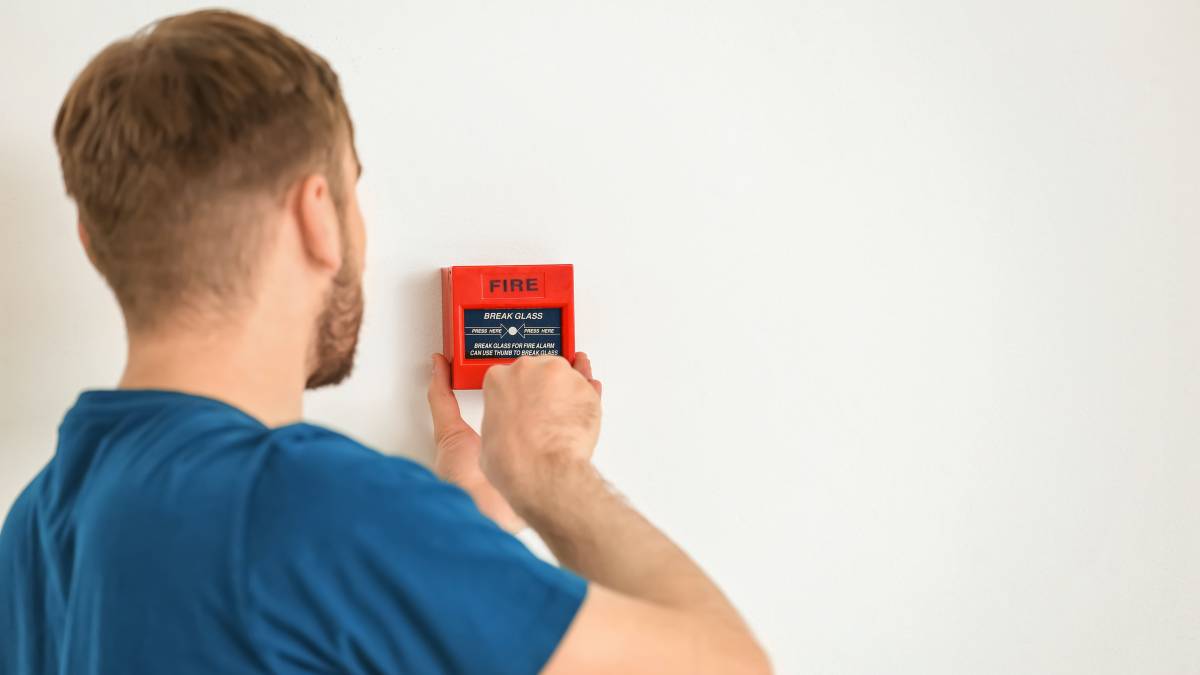

Find professional local fire alarm services in Dallas
Fill in a short form and get free quotes for fire alarm system installation
Excellent rating - 4.3/5 (9300+ reviews)
Book a trusted fire alarm installer near you
- Fire alarm installation
- Fire alarm wiring
- Fire system service
- Fire alarm repair
- … or anything else
Recent Fire Alarm Installation tasks in Dallas
Fire alarm system installed for child care center
$600
Dallas, TX 75232, USA
Oct 19th 2022
In need of a fire alarm panel/system installed for child care center - Due date: Before Wednesday, October 26, 2022
What is Airtasker?

Post your task
Tell us what you need, it's FREE to post.

Review offers
Get offers from trusted Taskers and view profiles.

Get it done
Choose the right person for your task and get it done.
Expert Fire Alarm Installation in Dallas: Your Guide to Safety Solutions
Texas communities are largely vulnerable to natural disasters, most notably wildfires. In 2024, the state witnessed the biggest wildfire in its entire history when Smokehouse Creek in Hutchinson County, ignited more than 1 million acres of land.
As early as January this year, the city of Austin — a mere three-hour drive away from Dallas — has already been named fifth in a ranking of major cities most prone to wildfires.
This makes fire safety an essential for homes and businesses in Texas. Given the great and persistent risk of wildfires, especially during fire weather days, the state carries strict regulations surrounding the proper installation of fire alarms and smoke detectors.
To stay compliant with these policies and safe from both unprecedented natural disasters and avoidable hazards, make sure you have an expertly installed fire alarm system at your home or workplace.
Texas Regulations for Fire Safety
Most establishments in Texas are required to have working smoke detectors installed. Commercial buildings, in particular, are expected to have an approved fire protection system with components, wiring, and circuitry that meet the terms of the National Fire Protection Association (NFPA).
Residential spaces, both owned and for lease, must also have smoke detectors, per the Texas Property Code. These detectors may vary in location based on the type of residential space you own:
Multiple-level dwellings should have at least one smoke detector on each level.
Studio apartments should have a smoke detector inside the room itself.
Bedrooms above living or cooking areas must have a smoke detector on the ceiling above the stairway.
For rental properties, landlords are required to install and inspect smoke detectors, maintaining them regularly and educating tenants on fire safety.
Choosing the Right Fire Alarm System
The type of system required can vary greatly on what type of property you own. You can be renting a small office near Downtown Dallas, managing a warehouse in the Design District, or own a quaint home or rooms for lease in urban Uptown — these different scenarios entail different needs for a fire protection system.
Consider these key factors when choosing the right one for you.
What type of property do I own?
Residential properties, especially single-unit homes, often make do with simpler fire alarm systems — just one already works in usual cases. On the other hand, commercial fire alarm systems require more robust setups given the larger area to cover, as well as the nature of items that must be protected.
Is it practical to centralize my system?
When installing fire alarm systems for an apartment or condominium, you can either use standalone smoke detectors for each room or an integrated fire alarm system per floor or for the entire building. While standalone detectors can be more affordable for smaller properties, centralized fire alarm systems are usually more reliable. They are wired to a control panel or fire alarm monitoring system, making them more preferred to use for commercial and industrial facilities.
Maintenance costs should also be taken into account for such a decision. Wireless, standalone detectors have more batteries that need to be replaced over time, making it potentially less efficient in the long run.
Do I need advanced system features?
You can get features like off-site fire alarm monitoring, voice evacuation, and integration with sprinkler systems to give you better peace of mind — but are these worth the extra cost?
What to Know About Your Fire Alarm System Components
A fire alarm system is more than just your smoke detectors. It is a network of devices intricately connected to detect and respond to emergencies. Here are the usual components of a fire alarm system and how they function:
Control panel
The control panel acts as the "brain" of the fire alarm system. It monitors all connected devices, processes signals from initiating devices, and sends alerts when a fire is detected.
Modern control panels often include user-friendly interfaces, allowing property owners to monitor the system status and troubleshoot issues.
Advanced panels can be integrated with building automation systems for centralized control.
Initiating devices
These devices detect signs of fire — such as smoke, heat, or flames — and send signals to the control panel. Some types can also be manually pulled by occupants at times of emergency.
Notification devices
These devices alert occupants to evacuate during emergencies. Alarms can be audible (like loud sirens or horns), visual (like flashing strobes), or use synthetic voices.
Power supply
A fire alarm system requires a reliable, primary power source connected to the building's main electrical system to operate. Backup batteries are also needed to make sure the system stays functional even during power outages.
Step-by-Step Look on Fire Alarm System Installation
For Dallas-based properties, it's important to work with licensed professionals who are familiar with local regulations and industry best practices to ensure the safety and compliance of your property — whether you own a residential or commercial space.
Here's what you can expect from a fire alarm system installation booked on Airtasker:
1. Site assessment
A professional fire alarm installation begins with your hired technician running a thorough assessment of the entire site. They will inspect the layout of the property, including room sizes, exits, and stairways, to identify the ideal placement of your fire alarm devices. Expect fire-prone zones such as kitchens, storage rooms, and electrical panels will be prioritized.
2. System planning
Once the assessment is complete, your Tasker will begin working on a tailored fire alarm system designed to address the specific needs of your property. At this stage, they will select what components to place within your property, including any advanced features that can be necessary. They will also determine whether a centralized or standalone system is more practical, factoring in local fire code requirements, such as NFPA standards and Dallas-specific regulations.
3. Installation of devices and wiring
After finalizing the design, technicians will proceed to install the system components. They will strategically mount smoke and heat detectors in the designated areas. Detectors are usually placed on ceilings or high walls, since smoke rises during a fire.
They will also work on wiring the devices to the central control panel, and install power supply units, including a backup battery.
4. Fire alarm testing and verification
Once the devices are installed, the entire system will be rigorously tested to verify that it's functional, ready for use, and compliant with fire codes. Technicians will trigger the initiating devices to see if they properly activate alarms and if the notification systems work. They will also verify whether features like off-site monitoring functions as expected.
5. Code compliance and certification
In Dallas, fire alarm systems can't just be subpar. They have to meet stringent requirements, which is proven by obtaining a fire alarm certificate. To secure this, technicians must document the system design, installation, and testing results. Certified professionals will visit the property to conduct a fire alarm system inspection. If you pass, you will receive an official fire alarm certificate, which means that your property has successfully complied with local fire safety standards.
6. Fire alarm system maintenance and repairs
Neglecting regular maintenance and repairs can lead to system malfunctions like false alarms or unresponsive detectors — both of which increase your risks of accidents. A licensed technician can repair any damage in the wiring, replace batteries or outdated components, and recalibrate the sensors as necessary.
If your existing fire alarm system is an older setup, it may be best to work with a Tasker to get upgrades. Your system may be lacking modern features, such as enhanced detection capabilities or integration with building automation systems, that are more compliant with updated fire codes and save you the trouble and extra costs of dealing with accidents.
Keep Your Property Safe with Professional Fire Alarm Installation
Fire alarms are vital to keeping any property safe, especially in Dallas. High-rise offices in Downtown and single-family houses in suburban neighborhood can both benefit from investing in expertly installed fire prevention systems, paired with regular maintenance, to make sure your property is protected against potential disasters.
Prevention is always better than reaction. Safeguard your home or business with a system designed to be your first line of defense, all while addressing the unique needs of your property. Find licensed experts to design and maintain your fire alarm system by posting on Airtasker, and quickly receive offers that align with your budget and timeline. Post your task today!
FAQs
How much does it cost to book fire alarm installation services on Airtasker?
If you’re looking to have a fire alarm system installed in a residential area, you can expect to pay $140 to $170 to install one smoke alarm and around $310 to install two units, not counting labor. Commercial fire alarm system installation may be priced higher. Taskers can provide you with more accurate quotes.
What do you call someone who installs fire alarms?
They are often referred to as fire alarm technicians or fire safety specialists.
Can I install my own fire alarm?
There are battery-powered alarms that can be easily installed by yourself, but if you want to get wired systems, these will require professional installation. Only certified experts should install this type of fire alarm systems to guarantee that they are properly working and adhere to local fire codes.
Do technicians need to be licensed to install fire alarms?
Yes, they must be licensed to prove they’re trained and qualified to install fire alarm systems that meet safety standards and regulations. Feel free to request seeing this credential when hiring a Tasker.
Will it cost you if you accidentally set off a fire alarm?
False alarms in Dallas can result in fines, especially if emergency responders are dispatched unnecessarily.


